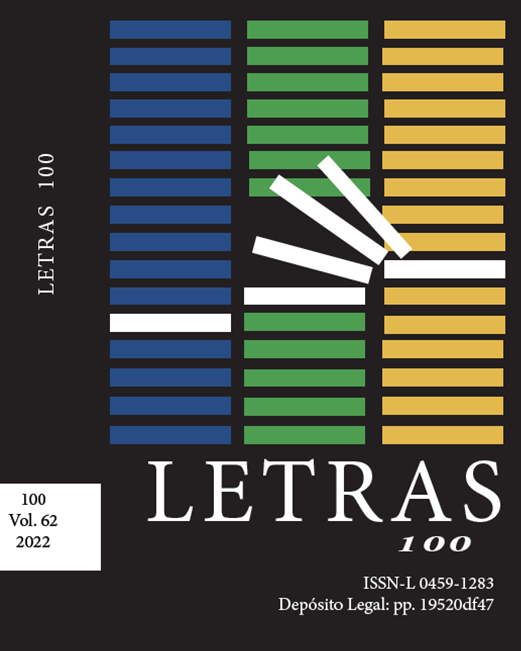La Mista a long story in the history of Venezuela
DOI:
https://doi.org/10.56219/letras.v62i100.1422Keywords:
José Rafael Pocaterra, Epaminondas, La Mista, historical moments of VenezuelaAbstract
José Rafael Pocaterra, one of the most significant writers of Venezuelan literature, tells us in his Cuentos grotescos (1922), the vicissitudes and hardships he suffered along with the people. In this sense, the general objective of this research is to highlight the symbolic role of his eloquent character Epaminondas of the story La mista, a small town teacher, as the most authentic representation of the unfulfilled illusions of the people throughout its history, thus, it seeks to demonstrate its transcendence in the collective imaginary. Therefore, a tour is given through certain historical moments of Venezuela, being our starting point the colonial period, the independence period, the republican agro-exporting period of the 19th century and the republican oil-exporting period of the 20th century. To discuss these periods, we developed a research of documentary nature, framed in a qualitative methodology, and theoretically framed on the works of Silva Luongo (2005) and Silva and Moncada (2009).
Downloads
References
Betancourt, R. (1941). El alto costo de la vida en Venezuela y sus causas. En: diario Ahora (9 de septiembre 1941).
Moncada, S. (1985). Los huevos de la serpiente. Fedecámaras por dentro. Alianza Gráfica.
Pocaterra, R. (1985). Cuentos grotescos. Editorial Panapo.
Salvatierra, C. (1970). Dimensión humana de la novela venezolana contemporánea. Universidad Católica Andrés Bello. Centro de investigaciones literarias.
Silva Luongo, L. (2005). De Cipriano Castro a Carlos Andrés Pérez (1899 – 1979). Hechos, vivencias y apreciaciones. Monte Ávila Editores.
Silva, L. (2009). El sueño insomne. Fundación Editorial El Perro y la Rana.
Tejera, M. (1976). José Rafael Pocaterra: ficción y denuncia. Monte Ávila Editores.
Published
How to Cite
Issue
Section
License
Copyright (c) 2022 Letras

This work is licensed under a Creative Commons Attribution-NonCommercial-ShareAlike 4.0 International License.
Letras magazine retains the patrimonial rights (copyright) of the published works, which favors and allows their reuse under the license (CC BY - NC - SA 4.0), for which they can be copied, used, disseminated, transmitted and expose publicly, as long as the authorship and original source of its publication (magazine, publisher, URL and DOI of the work) is cited, they are not used for commercial or onerous purposes and the existence and specifications of this use license are mentioned.















